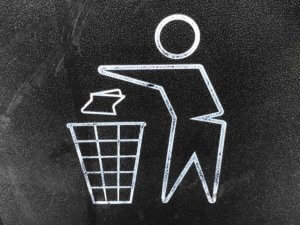Ethics & the Environment
Published on September 27, 2017, at 7:35 p.m.
by Hope Runyan.
Within the past 10 years, we’ve seen a change in how companies operate. Across the globe, they have made the shift to a more environmentally sustainable way of working. Why?
In today’s market, consumers are making purchases because of their distinct connections with a company or organization — more specifically, the role it plays in matching its consumers’ interests.
This trend forces companies to place an emphasis on their corporate social responsibility and creatively relay that message back to the consumers. The bottom line: If you aren’t focusing on what’s important to your target publics, how are you going to keep them coming back?
The answer is transparency. Nowadays, being transparent about your environmental impact to your consumers is a no-brainer strategy; people care about the effect that their purchases have.

But, far too many companies are “greenwashing,” a PR strategy to present a false environmentally responsible image, instead of being fully transparent.
It’s no secret that people favor companies who act responsibly. It’s also no secret that companies that actively promote environmental responsibility and stick to that motto operate better.
We are now aware that the climate challenge we face and that our country’s carbon footprint are too large for one company to fix. CEOs are stepping up to the plate and encouraging their consumers to do the same. This action creates a direct relationship between the company and its publics while reinforcing their common interests.
These companies are missing the main point of what it means to track their environmental footprints. By identifying regular use of water, fuel and energy, companies can actually find solutions for lowering these consumption levels and save money. It may be that monitoring your environmental impact isn’t mandatory, but you, as well as your consumers, will appreciate it more in the long run.

Take Starbucks, for example. One hundred percent of Starbucks’ coffee is certified ethically sourced. This verification comes through a large initiative in partnership with Conservation International to set rules for creating environmentally and socially beneficial practices for growing coffee.
This wasn’t a quick PR idea to attract customers; it was an investment in the company and the people who are impacted by it. By purchasing ethically sourced coffee, Starbucks ensures a better livelihood for farmers who grow the beans.
Earlier this year, Starbucks launched the Sustainable Coffee Challenge in an ongoing effort to make coffee “the first sustainably sourced agricultural product,” an initiative that will have a positive environmental impact for years to come. Customers can’t help but admire Starbucks and its efforts to reverse the negative impact that we all have on its most important business partner — the planet.
To say that a company is engaging in environmentally sustainable practices reflects on its commitment to ethics. By giving back to the planet in some way, companies are directly impacting their customers’ lives — which, yes, is great PR. But I would argue that it really is just good business.




